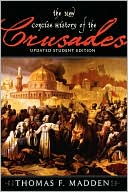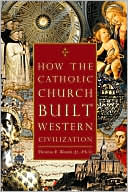The following is a letter I sent to www.NDResponse.com, members of the USCCB, and others connected with Notre Dame.
Dear Brothers in Christ,
I realize that you may readily dismiss this email for several reasons. First, you are inundated with emails about the invitation to President Obama to deliver the commencement address at Notre Dame and to receive an honorary law degree. For some of you, this inundation simply adds to the flood of emails you receive on a regular basis about other, more mundane matters, and it will be easy to disregard one from someone you do not know.
Second, I am not a Notre Dame alumnus. Neither my undergraduate nor graduate degrees were awarded me from South Bend.
Lastly, I am a Protestant.
Given these second and third points, you may well wonder why I would bother to write, yet I offer that it is precisely because of them that I do so.
Although my degrees in Classics are from Indiana University and The University of Texas, I must tell you that Notre Dame has always stood forth as a beacon of higher learning, higher not only in the traditional sense of undergraduate and graduate training, but higher also in its commitments as a Christian university. As surely as the gridiron of Knute Rockne beckoned a young Daniel "Rudy" Ruettiger with its storied past and inspiring vision of what might be, so the halls of many of your academic departments have stood as guiding lights to Christian academics. One need only think of your own Alvin Plantinga's "Advice to Christian Philosophers," a clarion call to meaningful, faithful, distinctly Christian academic work that has inspired a small army of Christian scholars. Notre Dame means something, even to those who have never attended its classes. Notre Dame has been a symbol of what a Christian academic institution can and should be.
Similarly, the Roman Catholic Church and its institutions are voices of importance and, dare I as a Protestant say, of authority. Many of us in the fractured and splintered Protestant world find our hearts beating just a bit stronger when a Catholic brother or sister in Christ has the courage, backed by the substantial authority of Church teaching, to proclaim to the world that X is right and Y is wrong. We non-Catholics need the Catholic Church to remain true to its foundations and to its historical teachings. If nothing else, Protestants need the Catholic Church to remain firm and fixed, else we have nothing sure against which to protest! In all seriousness, we Protestants, who often struggle with issues of eccesial identity, would have no identity at all were it not for Rome.
In short, what Notre Dame does as a representative institution of the Roman Catholic Church has far greater and broader consequences than solely for its current students and faculty, its alumni, or even its extended Catholic family. What Notre Dame does speaks to an inconceivably wide audience.
Therefore, I add my name to those who question why Notre Dame would extend such a speaking platform and honorary degree to President Obama, whose early days in the White House alone have strongly suggested that his professional, political actions are at odds with the teachings of the Roman Catholic Church. Whether or not one agrees or disagrees with President Obama's political position or the teaching of the Church on a variety of social issues is irrelevant. It must strike anyone, no matter their own position, as inconsistent for a Roman Catholic University to lend such a leader its stage. An atheist could see that it would be inconsistent for an Islamic institution to open the bully pulpit to an orthodox Christian speaker. Such an event would only make sense if either the institution were giving clear signal that it was moving in the direction of the speaker whose views were known previously to be at odds with its own, or that the speaker was moving in the direction of the views of the institution.
Should a university invite diversity of thought? Of course. Should it encourage conversation with those who oppose its views? Without question. And this is all the more so for a Christian university, since any university founded on the One Who has proclaimed Himself to be the truth (John 14:6) need never fear honest intellectual inquiry and debate. Yet that is not what is taking place at Notre Dame's commencement, unless the proceedings have changed to take on the form of a round table discussion with open dialogue between the speaker and certain respondents.
Fr. James V. Schall, S.J., once put it like this. "Tell me what you honor and I will tell you what you are." It is my fervent hope that Notre Dame will prove to be in its public actions what it has been for so many, a Christian institution of higher learning.


1 comment:
Well said. Thanks for that MC.
Post a Comment